 The SFFaudio Podcast #762 – Jesse, Paul Weimer, Evan Lampe, Terence Blake, and Jonathan Manfred Weichsel talk about Sixth Column by Robert A. Heinlein
The SFFaudio Podcast #762 – Jesse, Paul Weimer, Evan Lampe, Terence Blake, and Jonathan Manfred Weichsel talk about Sixth Column by Robert A. Heinlein
Talked about on today’s show:
get people to believe he’s Terence, J stands for Jonathan, Manfred sounded cooler, just change your last name to Scalzi and all the blessing will come, you can replace Heinlein, this John Scalzi book called Sixth Column, serialized in Astounding, not based on a Heinlein idea at all, the original idea was Campbell’s, all the problems it has are Heinlein’s fixings, Jack Vance shitting on Campbell, psychics and telepathy, well done for a bad idea, not one of his best, major works, thought experiment, opposite thought experiment, Revolt In 2100 in reverse, theocracy, make people believe, If This Goes On is Revolt In 2100, revolts against people in power, revolution, fighting against the forces of prophet, pan-Asian tyranny, motives of the character, technomage weapon, falls for a girl, the movement culture makes the ideology, the change in him, less emotional growth, learns to become a rebel, how people get radicalized: through women, against god, The Moon Is A Harsh Mistress, the conspiracy element, the secret society within and a false leader, Adam Selene, Mike, the disciple is coming, enjoyed the book, one of the strongest competency fantasies, this Ledbetter effect, what a Campbell move, they’re genetically different from us, isn’t the US filled with other than white people too?, race is a thing, in the original texts, the whites vs. the pan-Asians, setting from Asian to not Asian, tone down some of the binary, unfixable, Anson MacDonald was racist, tiny brain – galaxy brain, old Heinlein, troll way you want to do it, changes, some city has been atom-bombed, considering the year, it starts when the war was over, we’re the werewolves of this Nazi empire, individual stories were fighting, you can make the argument they’re still there, on the Moon?, still guys in the mountains, people being killed into the late-1940s, ideological true believers, a hand that touched them to make them military, an uprising, a prison revolt, start a religion to solve a problem, a very American move, the turbans and the staffs, the beards, he stacked the deck, pan-Asianism, this less is less bullshit, the pan-Asian movement, Noble Drew Ali, Moorish Science, fezzes, little Hitler mustache, if this was happening in your community, government did stuff, the Black Muslim movement, Nat Turner, a movement out of Japan, the Black Dragon Society, take over Asia, Pan-Asian Orientalism, they’re trying to create a force against European colonization of Asia, unequal treaties, China, an attempt to unify counties under threat, nationalism, a congruency there, civic nationalist ideas, anschluss, an Ottoman identity, Pan-Africanists, Sun Yat-sen, the Asia for the Asians idea, largely a creation of the Japanese, the Japanese Empire, we have to fight the imperial power, they’re bad like us, as a way to avoid war and fight the west, Manchurians, national ambitions, disconnect between political realities and what unites us in people’s minds, post-colonial African, a pan-Germanist, a pan-Europeanist, subject to the master race, propaganda to that extent, not serious about pan-Asianism, Savage Headhunters, Shinto, edge out the other religions, atrocities, the Rape of Nanking, they weren’t being altruistic, the psychology of creating this book, it’s the Japanese, a god emperor somewhere in Asia, they conquered India, this pan-Asian government, the Soviets, Korea, set in the future, flying vehicles, The Final Blackout by L. Ron Hubbard, 1940, the end of the world, Europe is off the map, Beyond Thirty by Edgar Rice Burroughs, the South Pole, a similar setup, blackout and curtain, blackout curtains, they’re out of the game, a country knocked out of the Risk game, right before the novel begins, the United States is washed up, a plothole in the book, buildings, people walking around, it wasn’t bombs, a electromagnetic weapon, Washington is gone, the last flight out, Cheyenne Mountain, where NORAD is, Colorado Springs, tentacles, a fun book, the swami hats, the halos, he can sell it to Campbell, Heinlein operating at the Anson MacDonald level, early Heinlein comedy, the great God Motar, it got the cover, the conversation with the prince, the Divine Hand, silly and racist, funny dialogue, if Japan wins, states make nations, a national identity, folklore, flags, constitutions, anthems, winning in Asia, controlling this vast empire, give it enough time, a white republic became multi-ethnic, the original illustrations, the troops look Japanese, the Hand looks Manchu, scholar hat, more Chinese than Japanese, Mongolian, mongoloid, the five races theory, they’ve got a religion too, a divinity aspect, they don’t understand American religion, just use Christianity, Japanese spies, Francis Xavier, Commodore Perry, the Non-Intercourse Act, Trinity RPG, why can’t you close yourself off, capitalism won’t let you, the Khmer Rouge, the 1st world, the 2nd world, and the 3rd world, unequal treaties, you’re trading with us now, we set the terms of the trade, gunships, they are really good at this colonialism, free trade, snuggle up, after a war, more unequal than others, Cuba is not allowed to trade with the United States, open up countries to trade, many port cities, everybody get their own port, a lot of dissatisfaction, you are the slave class now, protectorate, brutal, this isn’t as racist as it could be, these two groups think race is a thing, you have to buy in, a biological fact, what the theme is, defeated by your prejudices, binary racist skeleton plot, what leads to decline and downfall is a set of prejudices, a native American born Asia, subject to the ray, Heinlein doing his Heinlein thing, I’m different from him, so about racist, police are the same everywhere, will they stay bribed?, pedagogical motifs, people are prejudiced, the summary of the first 2 parts, the Blitzkrieg of the United States Empire, the Citadel, military research, Ardmore works hard, Colonel Calhoon, believes himself to be Mota, or Motak?, he’s John W. Campbell, complete atomic power, selective death ray, a general solution of unified field, well behaved slaves require religion, encouragement and disencouragement, render under Caesar, African American religion, religion is a delusion, Stranger In A Strange Land, so much time focusing on religion, it’s a fake from the beginning, he’s Jesus, the disciple depicted, black and a thousand feet tall, Joseph Smith (not Jesus), doing more than one thing, Valentine Michael Smith, the disciple of Jesus, vanishing people, he dies like Jesus, stoned to death, but didn’t come back, the Mormons get a very favourable mention, a good version of religion, practical, the business aspect, they’ve got good business sense, an infinite money generator, Robert Heinlein being a gold bug, a DC superhero character from the 40s, Doctor Fate, The Flash with a WWI helmet, Babylon 5, not for religious purposes, a Mormon-like branch of Christianity, mumbo jumbo, invent and remember, a short novel, people offended by this, an evangelical branch of Christianity, ripped from daily headlines, slot-machines in their megachurches, come die with us anyway, people die for Christianity all the time, there is a third rail in the United States, American friends, there are Canadian religious people, tied to the land in the U.K., writing for a very secular Science Fiction magazine, make up a Christian religion and say it’s all fake, people would be very offended, when the Beatles compared themselves to Jesus, Dungeons & Dragons, third hand worried, when the panic came out, an American media thing, spill-over, the one with Harry Potter, if it gets to be a big enough interest, having fun, all the names, the other aspects of Mota, reading this in the 1940s, smile slyly inside, he’s being sneaky but I get it, it works as an anti-religious polemic, what makes this a lesser book, if Evan got his away, people would think about it in a different way, tying Americanism to Christianity, John W. Campbell’s All, racialism, using the dopey religion, so religious they’d be wrong about using Christianity, the conversations with the Christian believers, wrestling with using this fake religion, so contrived, For Us, The Living, just ignore Europe, the religions of Iran or Turkey, Chinese didn’t know that Americans were Christian, an Iron Curtain around the United States, closed off from the rest of the world, Donald Trump, build a wall around America, consume itself in war, Heinlein has no interest in Europe, Hitler, Medieval European, a feudal Catholicism, like monks living in cells, armour, nuns, charismatic Christianity, Job: A Comedy Of Justice, literalist, the Republican party, living in Job’s universe, atomic power, the serial we are about to read, fair probability, the effectiveness of invention, plausible, the whole setup is wholly implausible, invasion literature, if we had this setup, so many coincidences, they just happen to…, so constructed so as to be not one of his best book, whoever that is, definitely Heinlein, biggest problems, general acceptance of drugs, magic, the drugs only have the effect they say on the label, you have to take sleeping pills, also I don’t you getting up, konking you out, a naivete about drugs, good healthy skepticism, what happens right after these pre-WWII books, a think tank to help win the war, L. Sprague DeCamp, commissioned as an officer, pressure suits, Astounding [by Alec Nevalla-Lee], is the tech ripe, tech-bro, is there government funding for this thing, Larry Niven and Benford, rods from god, beat the Soviets, same thing, let’s think up scenarios, now everybody has to take their shoes off forever, you could combine liquids and make a bomb, endemic and super dangerous, the Slan effect, reading a Philip K. Dick novel, now I can run the world, that guy is weird, what maleness means, maybe children are smarter than adults, principles, all you have to do is take your hypnodrugs and you can learn languages, he can’t see it about himself, spin-up, he’s wonderful, it’s hokum, man can he write, criticism of Heinlein, sexual politics, the collapse of America, not for the betterment, to undermine things, the society of Friday, Balkanized, royals have moved to Canada, California, Ottawa, never a threat to world peice, a planetary society, the beanstalk in Kenya, she’s the James Bond working for a secret organization, tied to Gulf, in the future of Gulf, a take that at his own work, takes his own piss, time travel pussy one: The Door Into Summer, why Evan needed to do Heinlein for his podcast, he’ll mention other countries, he’s trying to bomb America, bombing the Taj Mahal, mostly he just cares about the United States, practically the United States, he’s so smart and good at spinning up, no impact with working at the navy yard, the Edison trust goes on, like G.E. or Bell, Bell Labs, their existence is there because they’re a trust, wild speculation, you’re given the monopoly so you have to give back, he’s got transmutation, lead into gold, poison gas into oxygen, there’s a change in energy, win WWII with alchemy, a broad comedy, very comedic, forgettable Heinlein, religion as a mask for science, power-play, Isaac Asimov’s Foundation, Dune, is the religion fake in Dune?, planted, a psychology of the masses, staff officers, soft sciences, planted the seeds for that chapters, precedents, Orphans Of The Sky, Universe, the science became a religion, gravity as a metaphor, a secret society, long and too big, the concept is really cool, he takes the long view, six months?, how many years are they at this?, couple years at most, he has only three issues to write it, where did this idea start in American literature, Mark Twain’s criticism of the Christian scientists, diet books, Extract From Captain Stormfield’s Visit To Heaven biblical justification, post-apocalyptic, what’s the name of that story?, many different satires of religion, hardly anybody there speaks English, they jailed his corpse, are they believing their own shit, Theosophy, L. Frank Baum, you can’t say I’m an atheist, having an argument ready, what’s a Christian, take you to their temple, what’s that?, judo flipped them, join someone else’s services, soul-searching, doing good, whatever names doesn’t matter, unity of all faiths, a scientific based version of the theosophical ideology, Muslim cleric in a Jewish temple, the audiences take it, the scientiologiston the street corner, we welcome Christian, play to whatever, they don’t start with you’re wrong, I worship Mithra, The Altar by Robert Sheckley, Two Dooms by C.M. Kornbluth, half-colonized America, a very C.M. Kornbluth story, if Weinbaum had lived, could have been bigger than Heinlein, nobody’s trying to say Scalzi’s the new Weinbaum, Zelazny death anniversary thread, google nGram, his works aren’t in print, locked away under copyright, H. Beam Piper is bigger than it ever was, the evidence is huge but Paul is not convinced, Scalzi wrote a reboot of the public domain book, after 1963, sinecure, go to youtube and look at all the views and compare to sales on audible, it’s huge, I only read free, free as I can do anything I want with it, a certain racial slur against African Americans, the good stuff rises, peter want the better stuff, the bad covers on Amazon are commercial, excised, taking offense by being babied, flatfaces, yellow monkeys, aliens, slanty-eyes, slanties, made that up for this book?, made up slurs are less problematic, thought experiment, Farnham’s Freehold next, pan-Africans invading the United States, The New Sun, we’ve got some white guys we need to hate, the token guy, Heinlien is anti-racist, the character is in the serial, who would die from their beam, the antidote to the racism in this book, lifeboat rules, a prejudice you have to overcome, just take this pill, go in with a ray and kill cleanly, soul-searching, get over your prejudices, promoted instead of fired, took the black pill, have you ever butchered a hog, Heinlein wrote these lines, pages and pages of dialogue Heinlein talking to himself, walking down the street of Des Moines, roll tanks, you’re a slave now, handing out gold, one foot in the Great Depression, soup kitchens, poor relief, Beyond The Horizon, in this era of his career, the changing nature of the stake, ambivalent, biases, dismissing female priests, can’t wear the beard, the oppressor, comfort women, mobilizing the women, traditional, burning the past, no research in it, hara-kiri everything’s to do with face, white women turned into comfort women, we need to liberate women, all hands on deck, salable chattel, 1911, anarchist feminist Chinese radical, comfort stations, a discussion in Japan about the new woman, changing the roles of women, the audience for this, written real fast, writing so much, chronological read through of Heinlein, the development of ideas, not an issue in 1941, the future history stories are under Heinlein, a rule throughout magazines, whole issues written by Robert Silverberg, we need more L. Sprague DeCamps, guess Caleb Saunders is getting a cheque today, recruiting guys, almost every issue, one year of Astounding, off magazines, a quarter of the way through, a future history laid out, And He Built A Crooked House, competence fantasy, Elsewhen, if I was running the war, Civilization with infinite gold or tanks, fun but weak, a pressor beam a sucker beam, the stacks were stacked against, the chess move, god damn them, enjoyable but a weak book, Paul didn’t enjoy reading this book?, the gun one, compare, by Paul, going at it on Twitter, it’s about guns, head and shoulders above this one, silly, a paycheck, I have this story here, unsalable, doesn’t stop him, Campbell’s writing was never amazing, maybe you could do something with this, more ambitious, social credit, post-scarcity, honor culture, a gun controlled society, cultural regulation, also not one of his best, one of the best of his early works, The Green Hills Of Earth, the novels that go down hill, crackin little ideas, he excels at novels, Friday is a really good book, bulky, falling in love with your rapist, a relationship with the guy, some mitigating fiction, your puritan locked down guy, a bit strange, a minor bug, Heinlein is at his best when he’s challenging you, shallow appreciation of Starship Troopers, the classroom stuff, arguing against, engage, come to an agreement, some candidate for the evil party, raise the age to 25, as a platform, get more people not to vote, does the Army vote for Biden?, the cultural perception, officers vs. non-officers, pro-war vs. anti-war, what’s the purpose, explicitly telling you this is for engagement, that speaks very well to the society, indoctrinate, in comparison, to write about his present, a veteran teaching the class, teacher pay, anything that will disrupt, learning things, conformity, marks are a way of controlling, we gotta do way more of that, a weird book, a classroom setting, a very complex book, a poll before the election, the 2020 election, the Army voted for Biden, go talk to the people, 2016, a choice between warhawks, Paul needs to flee, Clark Ashton Smith, a google ngram, you see the spikes, Edgar Allan Poe compared to H.P. Lovecraft, work it to make it work, Silverberg’s Downward To The Earth, 1981, Majipoor, throw in a contemporary of both of them, his presence doesn’t drop like Zelazny’s, H.G. Wells, pushing people’s buttons, not as controversial, challenging, Harlan Ellison, mostly a TV guy, mostly essays, Edgeworks, really bad press, full of typos, shoulda been smarter, reprint rights, number one is Ray Bradbury, he’s part of the curriculum, book guy, if you wanna be big you have to be mandated, Bradbury is safe and tame, he’s not great, he’s good, he’s got real good stuff, The Martian Chronicles, The Veldt, A Sound Of Thunder, he’s all about the feeling, he’s nostalgic, his ideas always have to do with feelings, what makes Fahrenheit 451, books are good, he’s in the slicks, his novels come later, his first movie is so flat, Rocket Ship Galileo, the worst Heinlein movie is the one he was involved with, was he smoking, Waldo, Magic Inc., a messy publication history, a lot of fixups, The Penultimate Truth, the Virginia Collection, full of typos, archive.org, The Unpleasant Profession Of Jonathan Hoag, at a certain point, I love Heinlein, I hate him, I love him so much, wow!, the market is drying up a little bit, that furious pace, that was his job, he was a fiction writer, Hal Clement was a teacher, Searchlight, All You Zombies, he loves the drugs, By His Bootstraps, how can he be so trusting of drugs?, he’s a tech bro, isn’t it the same worldview?, they’re the problem solvers, COVID on the brain, ivermectin, Jesse gets credit for something?, not that long ago in the 1970s and the 1980s, Alzheimer’s vs. dementia, cancer’s an old one, cancer is fundamental, the chances get greater and greater, a Whiggish view of science, revised or updated, why be so arrogant about our own views, historian, Heinlein: Tech-Bro by Evan Lampe, disrupting systems, taking government funding, the French Revolution, Enlightenment tech-bros, how about a 10 day week, the Temple of Reason, we got some good stuff out of that, Silicon Valley, they’re lighting, disruption is good, computer miniaturization, making things small and faster, multi-threads, a legit improvement, it doesn’t scale to non-hardware very well, running cooler, can do more at a faster pace, the software is magic on top of it, your monthly subscription, a Philip K. Dick story, Cory Doctorow, Australia has month, you will own nothing and you will eat bugs, funny on slack, mass resistance to the policy, why do students have phones with them, the Cory Doctorow explanation, the Evan Lampe explanation, Douglas Adams, cell phones looks like crumpets, a mainstream guy, the zoomers have revisited the Karl Marx line, my cell phone is trying to kill me, William Gibson, hacking the gibson through my cortex, Transmetropolitain by Warren Ellis, Neal Stephenson, because they’re geniuses, after whuffie, how good my camera is, how fast the wifi is, how come i don’t have a clip tray in my Windows, better and better then real bad, Mark Twain, the Civil War, avoiding poetry, 100 page poems, take a break from Mark Twain, both very Americans, traveled a lot, wrote for a living, Innocents Abroad, Life On The Mississippi, A Tramp Abroad, a short story that’s an anecdote, A Literary Nightmare, Anthony DeSimone, the story of a meme, feels relief, an early example of a meme, a little rhyme to remember ticket prices, so fuckin good, so clear but also has stuff to say, started out very optimistic ended cynical, gilded ages, everything travel, The Number Of The Beast, sick in bed, bedridden, trails off into nonsense, veers into the wrong direction, To Sail Beyond The Sunset, episode 103, Time Enough For Love, gonna explain something in Methuselah’s Children, he’s his own grandpa, very Heinlein, maybe that’s a different book, The Cat Who Walks Through Walls, upcoming slots, Paul’s not available, the first Carson of Venus novel in on LibriVox, it’s different, builds a rocketship, crashes on Venus, a parody of the competency narrative, wrong way Carson, read it as a self-parody, Bison Frontiers of Imagination, Pirates Of Venus, unusual for Burroughs, Lost Of Venus, do the Heinlein, Black House, Logan’s Run, Clifford D. Simak, a VR novel, Lord Dunsany, Michael Crichton, Progeny by Philip K. Dick, (Alex) Pulp Covers, bother Paul, totally racist, still really good, the mom’s an alcoholic and the dad’s a lawyer, the drama of it, the family relationships, mixed African race, enslaved all the white people, all good, he’s experimenting, The Puppet Masters, people in a certain class, different shades of skin, being extra-specially sensitive to this stuff, they’re just people, people are people, they’re all Americans, he thinks men and women are very similar, Heinlein’s sexual politics, screenshotting, raping his own daughters, sexy Heinlein books, they go to the future, skinny dipping, he likes lookin at ladies, missing in Sixth Column, a similar scene, the rebels are all nudists, Heinlein got over it, being comfortable with his body, marriages, he’s right about that shit, people bang more, abolish gender?, nudism in Nazi Germany, body culture, ready for the military, read the back of the comics, if this goes on, many different body types, the cat one, Nudist Camp, gold wire, David Ashton Walsh, just a fascist who wanted to fuck his mom, Mike B. Young, his twin daughters as well, who is going to stop you, Lazarus Long, these are his fantasies, The Roads Must Roll is anti-union, the Canadian truckers protest, as a guy, a guild, not what unions are after, they’re not for solidarity, eugenicists want to take over, create a master race, what the engineers are after, Starman Jones, without joining a guild, stowaways on the ship pick it up by doing it, Lester Del Rey, Badge Of Infamy, be a guild member to use Chat GPT, a class of people, they’re tv writers, movie writers, Professor Coolbreeze, a rich tapestry, who still fucked babes, they’re puritans, strawman the guy who’s a writer of books from a long time ago, do some raping, why does he have rape in his stories, all the libertarian sci-fi, libertarian tendencies, he’s thinking things true, people can’t win an argument with a dead guy without strawmanning him, a skill that people lack, what people read, formulaic stories, maybe challenging, Jonathan is a writer who breaks a lot of rules, accidentally vs. intentionally, intent, appreciation of popular fiction and literature, people say they read Heinlein then can’t believe how racist he was, the party discipline requires denouncing, you gotta say this now, a very twitter phenomenon, party conformist, people who still watch actual broadcast television, two different worlds, far right far left, a maga hat on, keep a sun out of his eyes, BCIT hat, visible maga people, hand painted signs, Trump flags, being visibly breaking decorum, rainbow pin on their lapel, Ukraine flag on the lawn, a laptop class, political people on twitter, very political most days, how is this processing, something Paul tweeted to Evan, there’s something wrong with me, how come I don’t get this, Elon Musk was defending him limiting some traffic in Turkey about the election, especially in right wing countries, hearing Erdogan is pro-Putin, not conforming with NATO, ethno-nationalist, continuing policy, he caved on that one, did you lose your brain, Evan is against ethno-states, always thinking about the people of the United States being white, projecting 100s of years in the future, doesn’t fit into his future history, should have worked harder on the re-write, the Americans fighting against eh pan pan-Asian, fundamentally flawed, you can’t really fix this, a thoughtwave pattern, those kind of experiments, a magic wand that kills all the women and Dylan Mulvaney is still alive, servicing John Campbell’s position and needs, I’m selling books here, kills only Asians, why not just disperse the death ray in a wide beam, the recruitment, what stupidness that it is, a very minor work, more silly than anything else, goofy, enjoyable, character heavy and painful and a transformed world, very engaging, the character of the alcoholic mother, he recycles them a lot, the mother-son relationship, allows him to be castrated, never before explored before, doctor my balls don’t work, insert some glands in yeah, some pain down there, okay doctor, drugs work perfectly, did he tech bro himself out of babies?, if he had had babies, he would have petered out, they’re all about children, childbirth is the goal, Lazarus Long has hundreds of children, what’s the point of life, I may be awesome, life is kind of absurd, reading writers who have these problems, Edgar Allan Poe, going to the ladies, Zora Neale Hurston, girls, yes, invented everything, for an American audience at least, much more than that, literary criticism of his, this is shit, here’s why it’s shit, a lot of context, his novel is rich, interesting nested, figure out what mode he’s in, he has to fill pages, writes a story to a piece of art, William Wilson, for the present volume, written for a book called The Gift, doppelganger and debauchery, Evan’s plan, Gertrude Stein, ambitious, 2 a week, 895 episodes, Lovecraft and Dick readthrough, Civil War, the American character, the American spirit, it came from those authors, Twain is much more of a common man, the great American author, America made its historical context, feed into later works, American culture made something distinctive before it went into massive decline, the anarchist socialist communes, counted out America, right after the Civil War, an alternative that doesn’t suck in the world, Jesse’s pitch, being America’s bitch sucks, do it in Canada, oppression but not much, basic government service, Colossus will get things done, getting the temple built, Mary McCarthy, Willa Cather, Margaret Atwood, the Canadian education system, Canadian literature is not the best, 10 times the population, extremes that Canadians don’t suffer, have your literature imported, the CBC’s job, other countries’ literature, Poe and Dick and Lovecraft, Stephen King, great literature exporters, chains, people claim there is, Mark Fisher, good history being written, new history vs. new fiction, Neil Gaiman, wonderful scholarship, self-aggrandizing, Jesse’s argument, a smart way to do it, nice microphone, quiet time, Jesse’s a terrible narrator, come to some arrangement, focused on audio, evangelical for it, audible [the website] didn’t exist, a growth industry, good product and great covers, listening while walking, from a commercial standpoint, only still on the rise, Jonathan has been converted, somebody is listening to this five hour show, gab in the background, nope, Tommy Patrick Ryan audiobooks, he wants to help out, not a money relationship, a wheelbarrow with a big hole in it, wheelbarrows are expensive, cover that hole, Jesse was right the whole time, publishing tasks, corporeal, orgy, divan, figures out the voice of the narrator, the Bronson Pinchot vs. Tom Weiner, straight reader vs. performer, a female accent, speech impediment or style of speaking, nobody has any inflections, there is a spectrum, transparent narrators, the elephants are very calm, he’s from Brooklyn, you’re never going to hear the end of it, people think they can reinvent the wheel, profits in new markets, used bookstore project, who doesn’t want to own a used bookstores, when 9/11 happened, homeland security, the US Postal Service, you’re fucking with me, street traffic vs. online only, a good location without a bookstore, buy a bookstore, you get the market, an inventory, people bring in free stock, pandemic rules, the pandemic was a very good thing, jubilee, she gets a prize you get nothing, wait until Kamala is your queen, reelected for the 2nd time, carrying his corpse around from press conference to press conference, Canadian foreign and domestic policy is largely dictated by US foreign policy, a demented guy in charge, the institutions, Bryan Alexander, speech impediment, its not on the news, shaking hand with butlers, juice him up, the clips are out there, that’s the scenario, brings nothing to the table, rumblings, Megan Markle, Oprah, renounce her royal title, a bad book, pan Atlantic country, H2O (2004 CBC miniseries), plausible scenario, a reverse coup, as sequel too, David Cronenberg, James Cameron, Marilyn Chambers, early controversy, a movie industry, set in Toronto, The Fly (1986), A History Of Violence (2005), Scanners (1981), filming there, architecture is Canadian, brutalist, a fetish for him, Canadian actors who never leave Canada, any kind of traction, just move to the states, William Shatner, where the work is, pass yourself off, Deadpool guy, aggressively Canadian, Ryan Reynolds, big weird country, kinda fake, founding myth, the North-West Passage, this big thing that was in the way, French Canadians, teach the controversy, two big companies, 54:40 or fight, break the line at 49, take up to Alaska, war with Britain, Vancouver, Washington, Hudson’s Bay, two business men go into a meeting, fuck the people who live on either side of this line, the black exclusion laws, Oregon has a racist foundation, escaped slaves, the problems that that entailed, no black people allowed, weird behavior, weird politics, every year Jesse goes with boats with clubs, Jesse puts his skins in a warehouse, all Americans live in California, a very arctic thing, more into salmon and cedar, three day festival and everybody goes clubbing, almost like a J. Manfred Weichsel story, satire, Heinlein and all of them went to the government, Astounding by Alec Nevala-Lee, there’s an audiobook of it, using science fiction ideas, Giants Of Eternity by Manly Wade Wellman, like in The War Of The Worlds, dig up all the super-scientists, Marie Curie, this is amazing, Charles Darwin, Thomas Alva Edison, Louis Pasteur, Isaac Newton, make fun of their personalities, got a big beard, the jokes write themselves, a cult of Edison, Edison skepticism, very important and also an asshole, a patent troll, a copyright troll, self-promotion, a machine that talks to the dead, break that out of the old dusty lab, Alfred Bester, telescopist, a baby seahorse nebula made out of anti-matter, wax cylinder, Ray Cummings, The Girl In The Golden Atom, super-science, a huge effect on science fiction, for a pulp author, still writing in the same mode, second pass at Edison, 1887-1957, the opposite of The Girl In The Golden Atom, our galaxy is an atom, just needs to fill pages, he had an idea about science, old fashioned for his time, Fitz James O’Brien, he’s sparky, What Was It?, dope smokin fiends, an invisible creature, while they’re smoking their hash, super racist, The Diamond Lens, a little lady, The Lost Room, Edgar Allan Poe, hoping to be sent to the front, lingered until April, died of tetanus, the biggest insurrection in U.S. history, 1/6, hundreds of people died in New York, The Wondersmith, nice big mustache, Guy De Maupassant, he’s in Weird Tales, Famous Fantastic Mysteries, Vanity Fair, Atlantic Monthly, died at 35, he really did cosmicism before Lovecraft, a cosmic point of view, some tech, 100% down with science fiction, Mary Shelley, Margaret Cavendish, travel to other planets, it has to be Wells, Edward Page Mitchell, C. J. Cutcliffe Hyne, Jack London, 1899, The Clock That Went Backwards, The Chronic Argonauts, ancestors in Amsterdam, their aunt is immortal, one of them stays and makes her, Back To The Future, that’s like Heinlein, Travel By Wire by Arthur C. Clarke, The Man Without A Body, this new fangled technology called telephone, a teleporter or a transporter like in Star Trek, didn’t charge the battery, Victorian era science fiction, Sam Moskowitz renewed all his copyrights, Science Fiction By Gaslight, Under The Moons Of Mars, scientific language, carbon emissions are going to kill everybody, coal heaters, the air becomes solid, heavy stuff, an idea that is science fiction vs. feels like science fiction, this is science fiction, looking back from our perspective, writes it off, A Corner In Lightning by George Griffith, electricity is a finite resource, a battery in the Arctic, her non-fiction, the Royal Society, arguing against the scientific method, giant like a lobster, tools to examine the world, distorting the view of the world, her major argument, being facetious, people took it like I was serious, hyperbole, aka he’s evil, an over-reading, trying to enact political change, excluded, utopian fiction, women in power, all we need is Hillary and everything will be all right, Jonathan Swift’s Gulliver’s Travels, he makes fun of himself, liberal positions, made Britain a very powerful science, the science, peer reviewed then it’s science, a 30 page essay, coherence problems, doing science, replicate it, that’s science, holy shit I did this thing with electricity, this Ben knows what he’s talking about, spoilers, trained not to care, peer reviewed scientific study on whether spoilers spoil, subsequent studies, they don’t want to hear it, they believe that spoilers spoils, hearing about a good science fiction novel makes me want to read it, who dunnit?, Twin Peaks, Glass Onion (2022), getting triggered, incorrect view of books, shipping, relationshipping, root for the two character get together, have they not seen Moonlighting?, lotta dumb people appreciate things because they’re dumb, people wanted to watch adult things, Are You Being Served, Yes, Minister, I like Scooby Doo, still stuck in the Scooby Doo phase, unable to put their pants on, they’re not thinkers, Dune, just gave a Hugo award to, they didn’t do the banquet scene because they’re making it dumber, Lady Jessica is crying every three seconds, no voice over narration, no whisper talking, the miniseries, Dune is a smart book, they’re reading it wrong, they’re reading it shallowly, jumpin on Heinlein, it’s literature, think critically about it, some guy wrote a fiction book, Kittycat Massacre, Cat Killer by Donald E. Westlake, the death of a fake cat, basically The Cats Of Ulthar with a juvenile delinquent in New York, Donald E. Westlake, The Balloon Tree, Nolan and Simak, slow/fast, new to audiobook, first audiobook last week, coming into something new in this format, Motar/Mota/Motak, page breaks, chapter titles, you gain your eyes back, ebook bumps (braille), feeling a book, so hardcore, half-assed job, oeuvre, exercise, Jonathan is not ready for this, never go back, Aftershocks to Shokz, they screw on your bone?, sits near your ear canal, transmits through the skin into the bone into your ear, vibraty, implants?, Open Run, Open Comm, one ear free is the rule, this tech is ripe, proprietary but magsafe style, big long charge, soon…, bluetooth doesn’t work underwater, swim while listening.
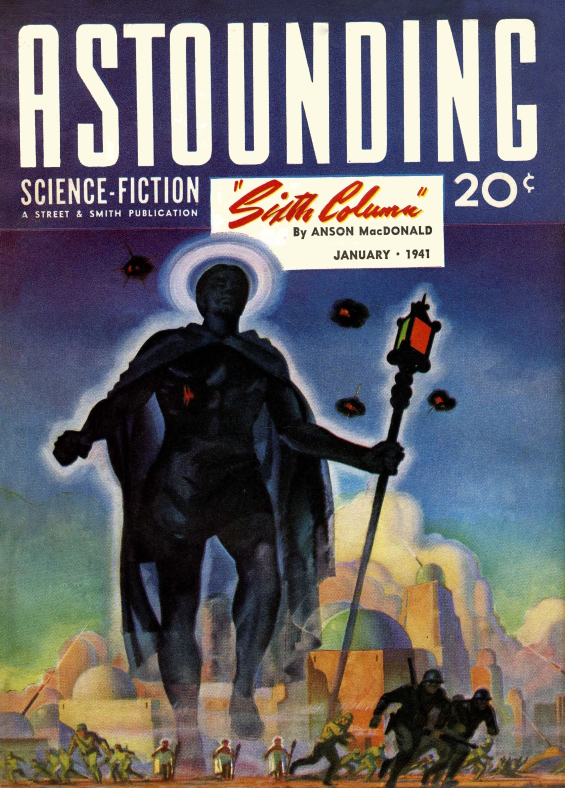
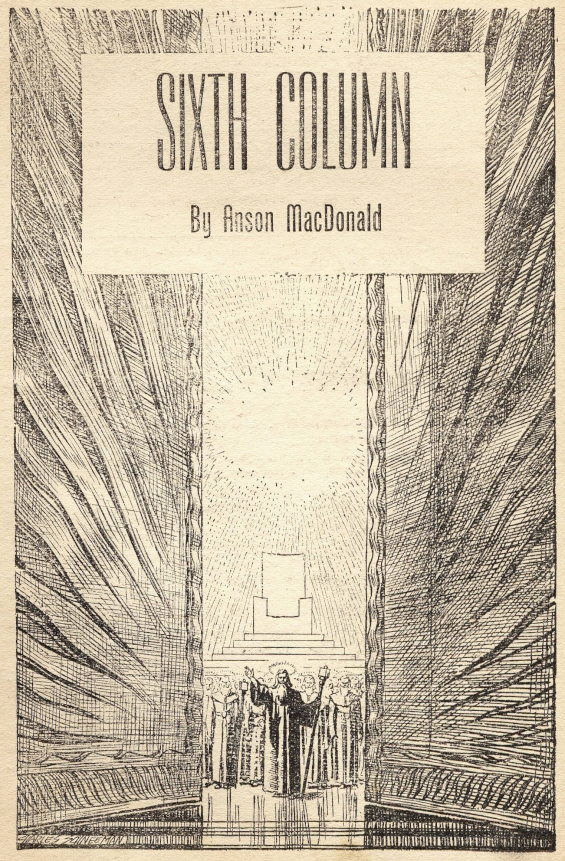
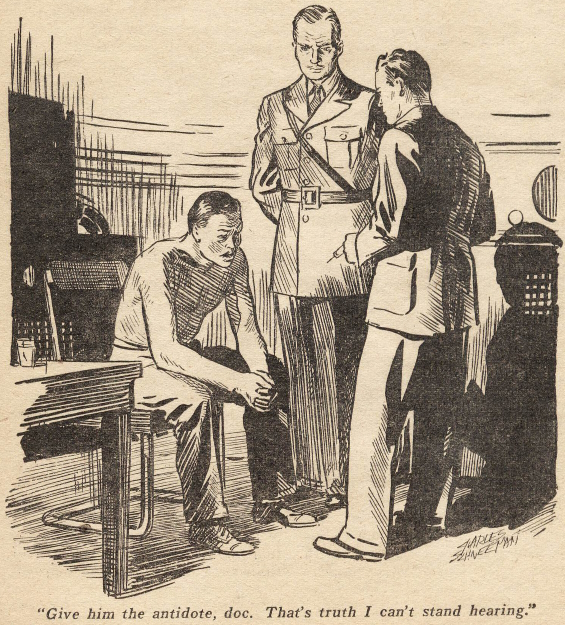
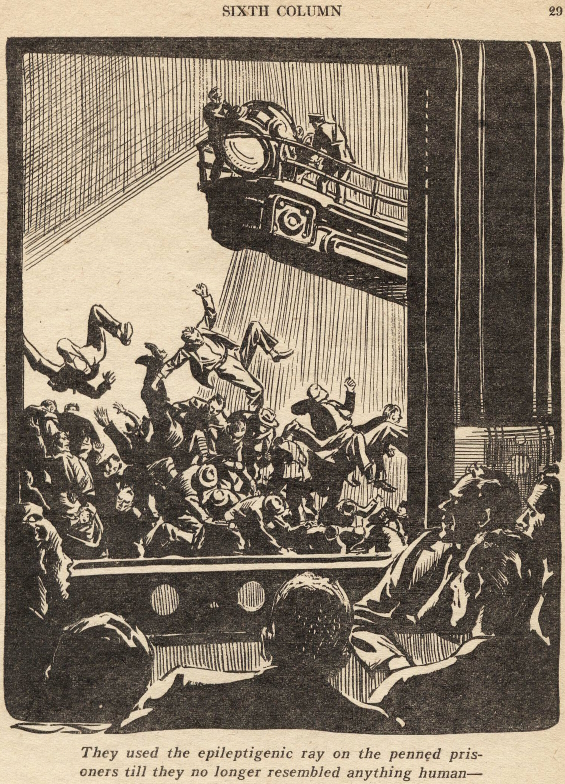
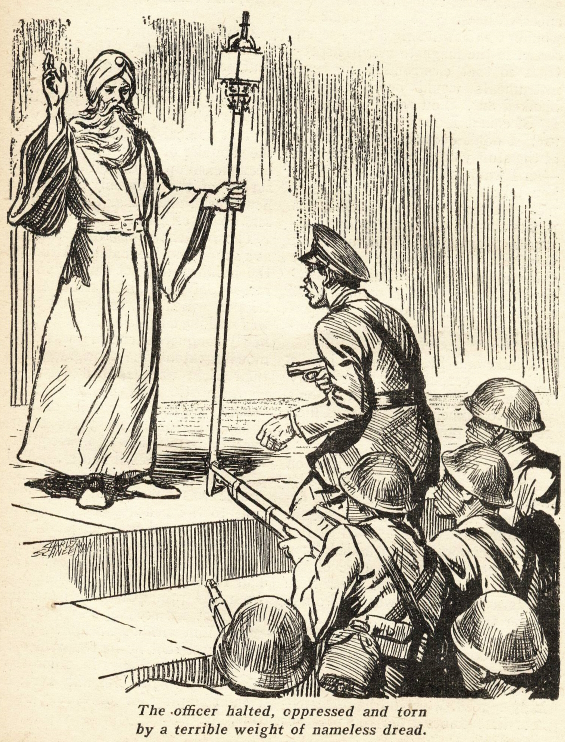
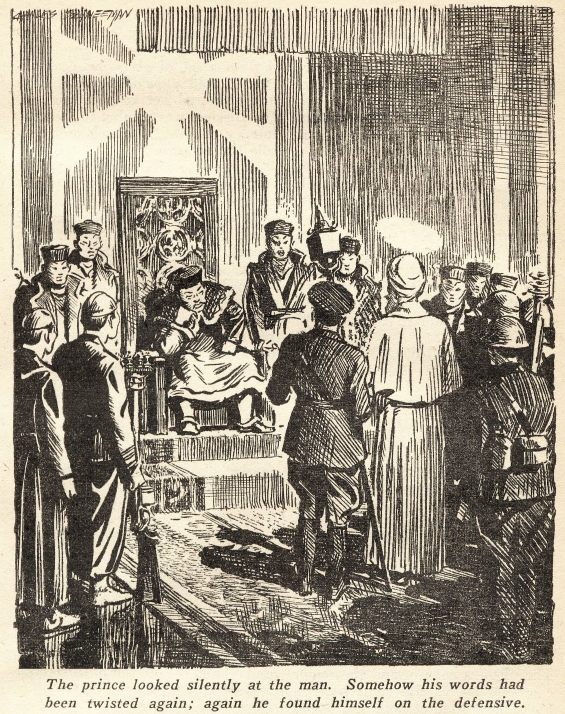
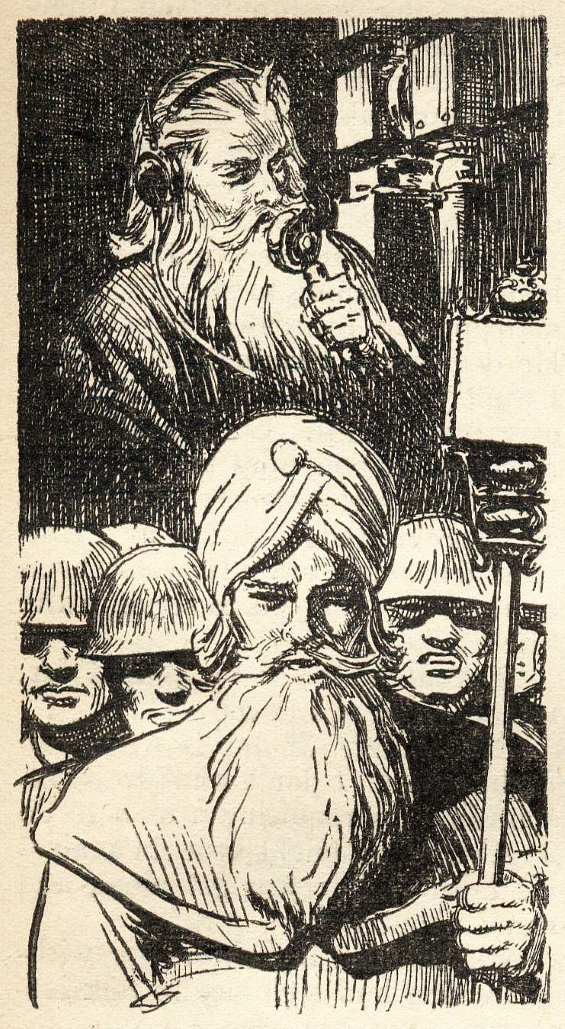
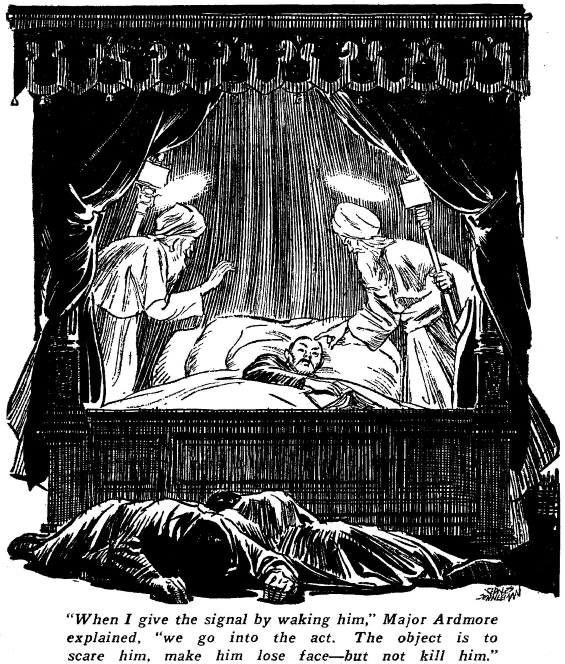
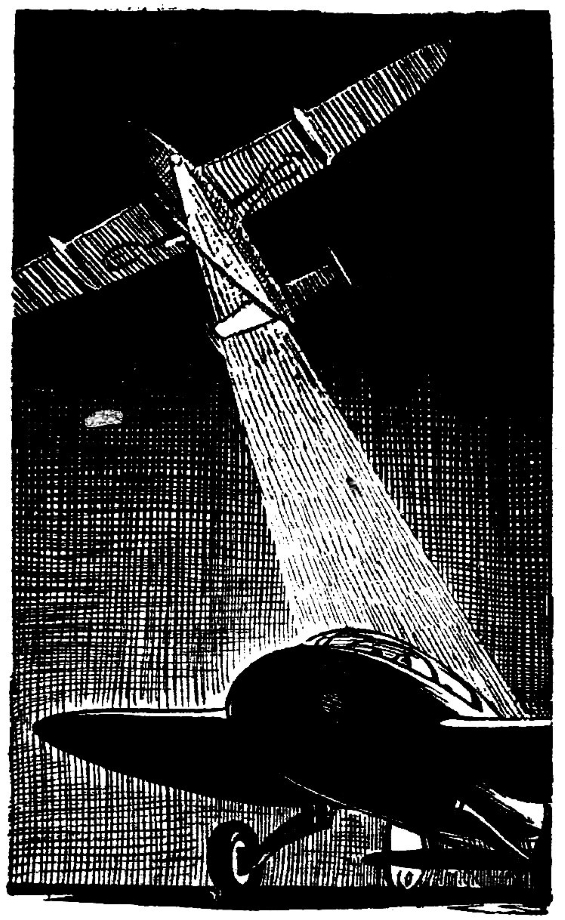
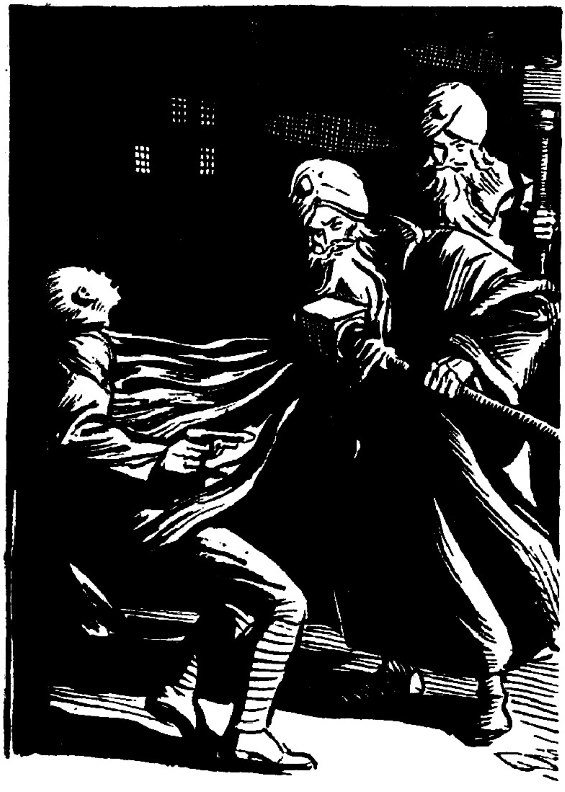

Posted by Jesse WillisBecome a Patron!

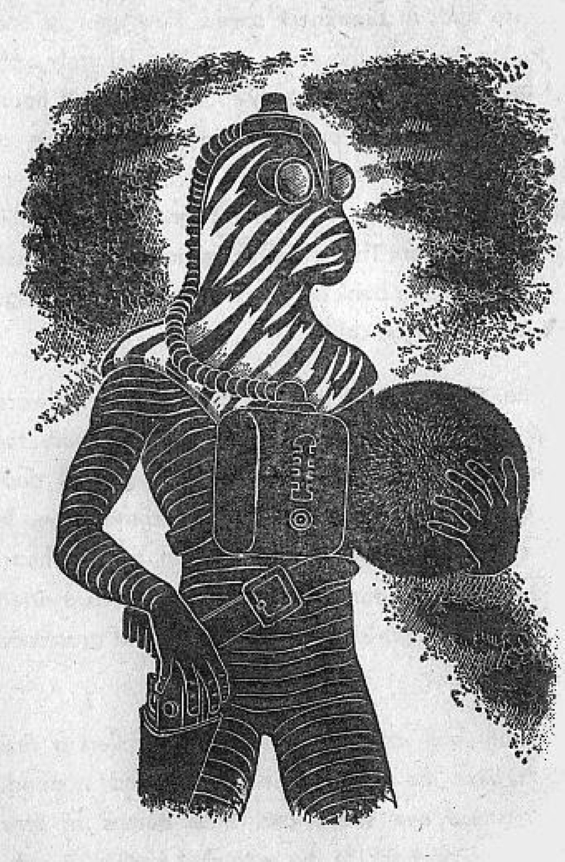


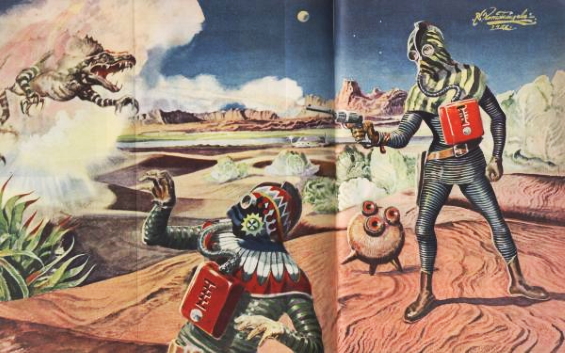

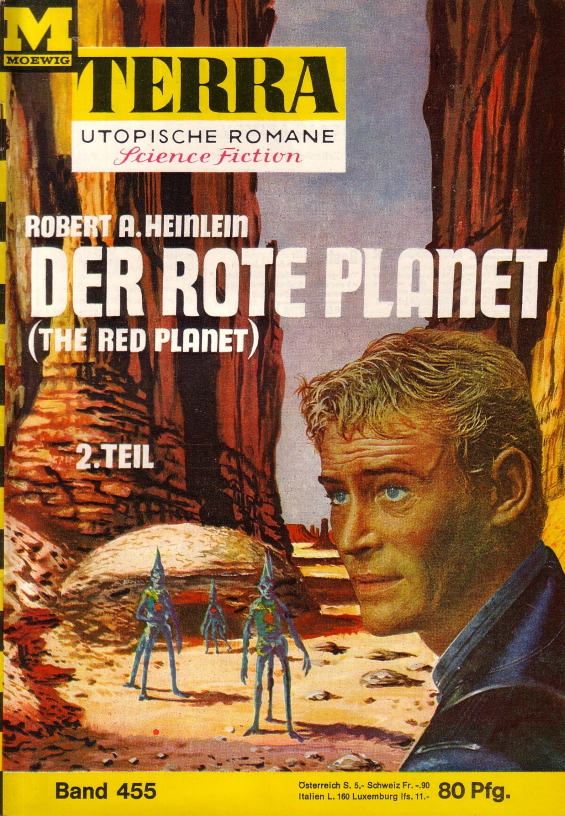


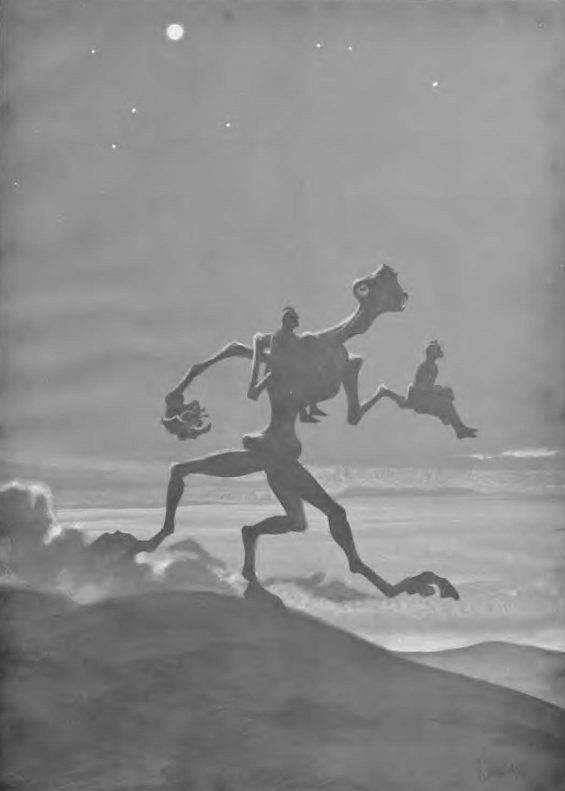
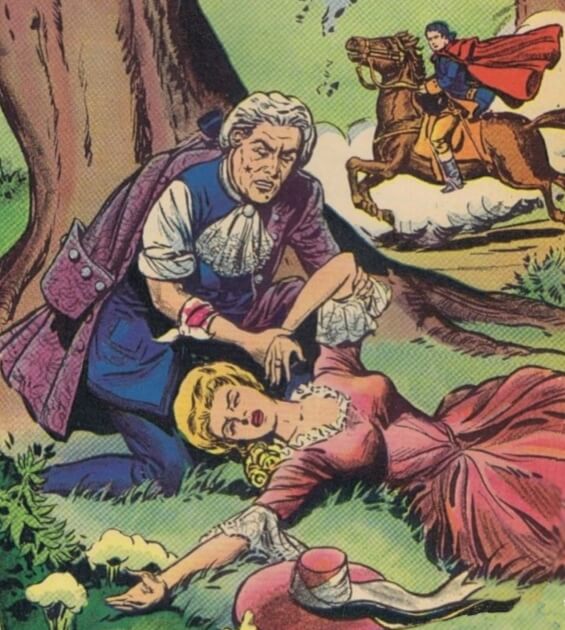
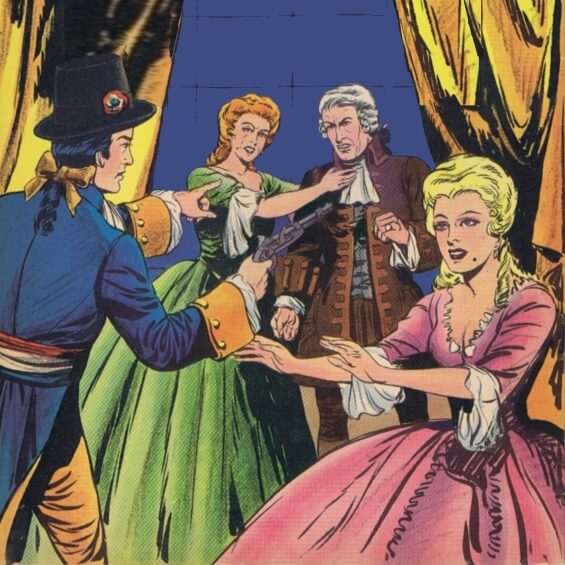

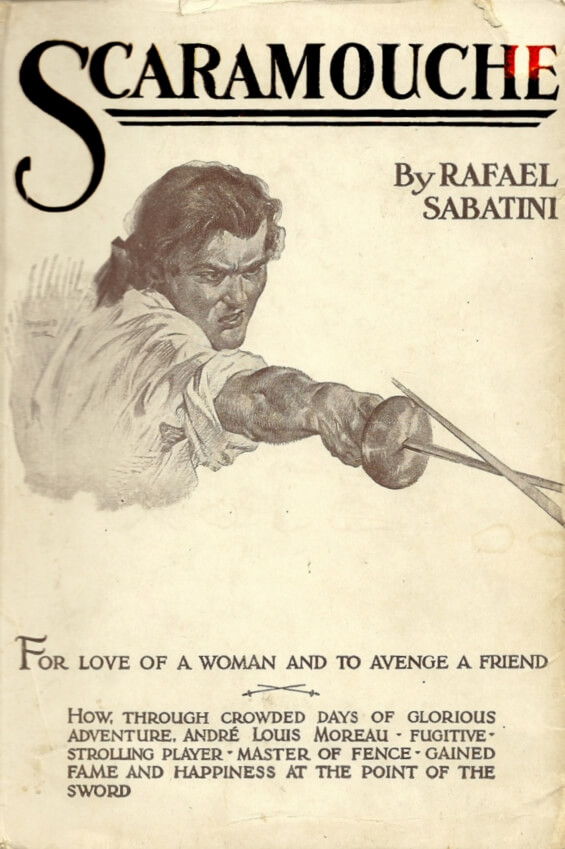

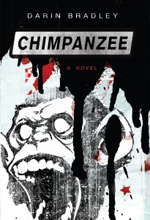 Chimpanzee
Chimpanzee Beyond This Horizon
Beyond This Horizon